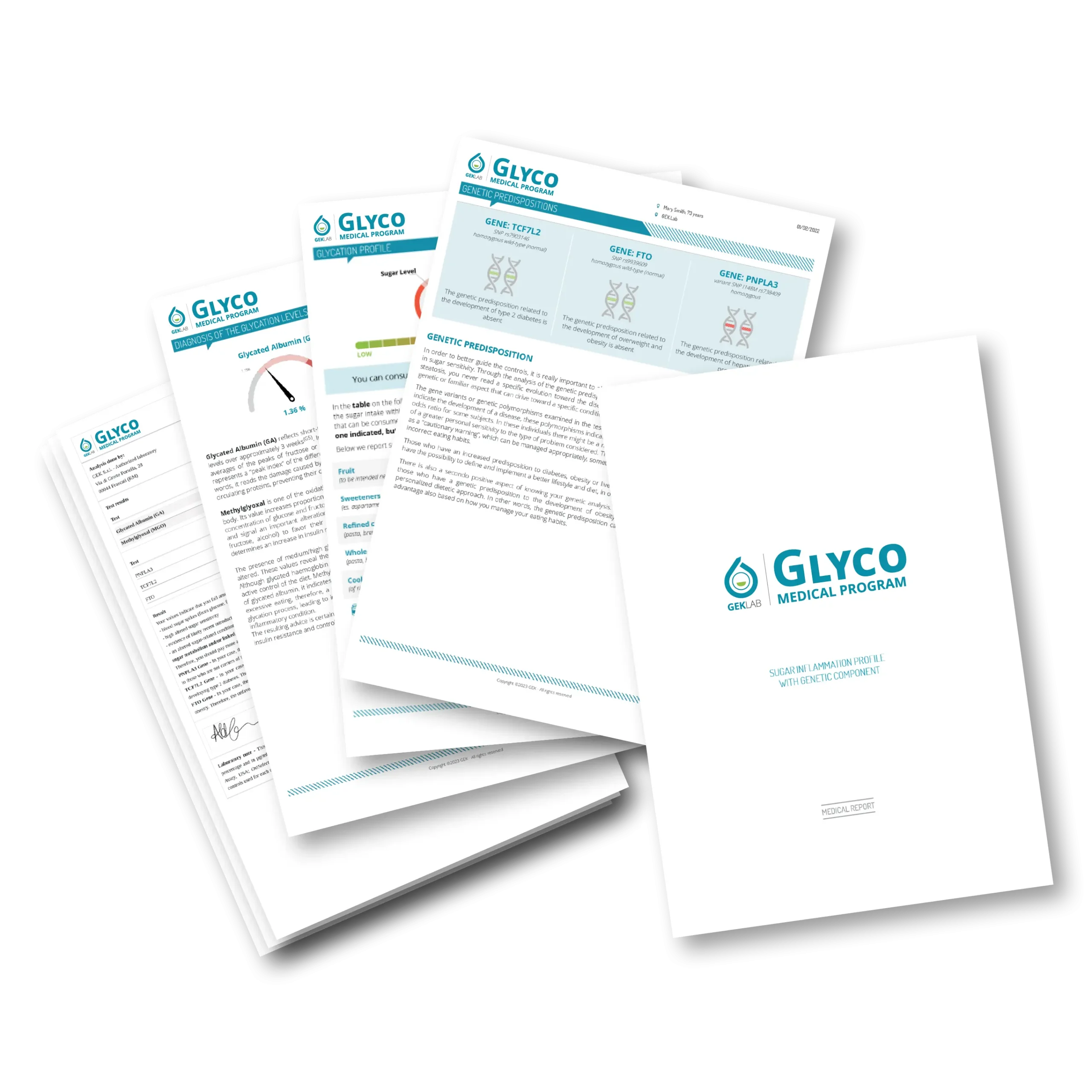
Insulin resistance has a significant impact on the body’s ability to effectively manage body weight. In this article, we will explore the link between insulin resistance and weight loss, focusing on the relationship between insulin resistance and sugar-induced inflammation. We will also examine some strategies that can help address insulin resistance and facilitate the weight loss process.
What is insulin resistance?
Insulin resistance is a condition in which the body’s cells become less sensitive to insulin, the hormone produced by the pancreas that regulates blood sugar levels. When cells become resistant to insulin, the pancreas must produce more to achieve the same effect. This increased production of insulin can lead to accumulation of body fat, as excess insulin promotes energy storage and fat accumulation.
Insulin resistance and sugar-induced inflammation can hinder the weight loss process and negatively impact overall health. Recognizing the symptoms of insulin resistance and adopting strategies to address it is essential for promoting weight loss and maintaining a healthy body weight.
Insulin resistance and sugar-induced inflammation
Sugar-induced inflammation is a process that occurs when excess refined sugars, such as those found in high-carbohydrate foods, are consumed. These sugars are rapidly absorbed into the bloodstream, causing spikes in blood sugar and excessive insulin production. Over time, this cycle of sugar spikes and crashes can lead to widespread chronic inflammation throughout the body.
Insulin resistance and sugar-induced inflammation are closely related. The chronic inflammation caused by blood sugar spikes can contribute to the development and maintenance of insulin resistance. At the same time, insulin resistance can increase inflammation. This vicious cycle can make weight loss and maintaining a healthy body weight challenging.
Symptoms of insulin resistance and sugar-induced inflammation
Insulin resistance and sugar-induced inflammation can manifest through a series of related symptoms. These symptoms include weight gain, difficulty losing weight despite a calorie-restricted diet, fluctuations in blood sugar levels, chronic fatigue, increased appetite for sweets, excessive thirst, and frequent urination. Recognizing these signals is crucial for effectively addressing insulin resistance and promoting weight loss.
If you suspect you’re suffering from insulin resistance or if you’re experiencing difficulty losing weight, it may be appropriate to undergo a Glyco Medical Program. This report analyzes the percentage of glycated albumin (GA) and levels of methylglyoxal (MGO) present in the body, two innovative analytes of significant diagnostic relevance. Currently, these analytes are measured in very few high-quality laboratories, including GEK Lab.
In particular, measuring levels of methylglyoxal can reveal an inflammatory action often unrecognized, leading to increased insulin resistance.
The Glyco Medical Program will also provide all the necessary advice for a diet that keeps sugars under control, based on the analysis results and therefore your personal level of inflammation.
Contrasting insulin resistance and promoting weight loss
To address insulin resistance and promote weight loss, it’s important to adopt a holistic approach that includes both dietary and physical activity changes. Here are some useful strategies:
- Reduce consumption of simple sugars: limit intake of rapidly absorbed sugars found in sugary drinks, sweets, cookies, snacks, and many packaged foods. Instead, opt for sources of complex carbohydrates such as fresh fruit, vegetables, and whole grains.
- Consume whole grains: to properly manage sugar metabolism, it’s advisable to exclusively opt for whole grains in every meal, such as whole grain pasta, bread, crackers, and brown rice. Whole grains contain higher amounts of fiber and partly protein compared to refined grains, which allows for the regulation of blood sugar absorption in a specific and gradual manner, promoting a greater sense of fullness and, consequently, contributing to better weight management.
- Increase fiber intake: dietary fiber helps slow down sugar absorption in the blood, thereby reducing insulin spikes. Fiber sources include, in addition to whole grains, legumes, vegetables, and fruits (preferring relatively low-sugar fruits, such as berries).
- Consume lean proteins: Proteins can help reduce the insulin response to meals. It’s helpful to include sources of lean protein, such as lean meat, fish, low-fat dairy, and tofu, in your eating habits.
- Have a complete breakfast: breakfast plays a fundamental role in this context, as it’s the main meal that should never be skipped. In fact, skipping breakfast can only worsen pre-existing insulin resistance. Therefore, it’s essential to have a balanced breakfast, with at least 35% protein, to ensure the proper functioning of metabolism and promote better insulin management.
- Exercise regularly: physical activity can improve cellular insulin sensitivity. Choose an activity that you enjoy or find relaxing, such as walking, running, swimming, or yoga, and practice it regularly. According to the guidelines of the American Diabetes Association and the American College of Sports Medicine, moderate aerobic activity of 150 minutes per week is recommended, which corresponds to just over 20 minutes per day. Studies have shown that even a single exercise session can lead to improved insulin sensitivity, both in healthy individuals and those with obesity and diabetes.
- Integrate magnesium: magnesium plays a crucial role in controlling blood sugar levels and carbohydrate metabolism. Low levels of magnesium in the body are associated with an increased risk of developing insulin resistance and type 2 diabetes. Make sure to consume foods rich in magnesium, such as dark green leafy vegetables, seeds, nuts, fish, and whole grains. If necessary, under medical supervision, consider taking a magnesium supplement, such as Zerotox MG3, which combines various organic magnesium salts and is effective for a wide range of clinical situations. Use 1 to 3 tablets per day distributed throughout the day, preferably with meals
Conclusion
Insulin resistance and sugar-induced inflammation can hinder the weight loss process and negatively affect overall health. Recognizing the symptoms of insulin resistance and adopting strategies to address it is crucial for promoting weight loss and maintaining a healthy body weight.
Reducing consumption of simple sugars, consuming whole grains, increasing fiber and lean protein intake, having a complete breakfast, regularly engaging in physical activity, and integrating magnesium can help improve insulin sensitivity and promote healthy weight loss.
Always remember to consult a healthcare professional before making significant changes to your diet or exercise regimen, and if there are doubts about the body’s glycation levels, don’t hesitate to measure it correctly.
By the Scientific Editorial Team at GEK Lab



